Nicholas Goda
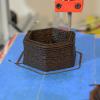 Coffee could be the key to reducing 3D printing waste, according to a new study. Researchers with the ATLAS Institute and Department of Computer Science developed a method for 3D printing using a paste made out of old coffee grounds.
Coffee could be the key to reducing 3D printing waste, according to a new study. Researchers with the ATLAS Institute and Department of Computer Science developed a method for 3D printing using a paste made out of old coffee grounds. The first-ever, randomized, controlled trial of community gardening found that those who started it ate more fiber and got more physical activity—known ways to reduce risk of cancer and chronic disease—and were also less stressed and anxious. Watch the video.
The first-ever, randomized, controlled trial of community gardening found that those who started it ate more fiber and got more physical activity—known ways to reduce risk of cancer and chronic disease—and were also less stressed and anxious. Watch the video.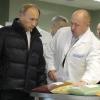 Russian officials have confirmed the Aug. 23 plane crash in the outskirts of Moscow killed Yevgeny Priogozhin, friend-turned-foe of Russian President Vladimir Putin. CU expert Sarah Wilson Sokhey offers her take on what Prigozhin’s death means for the war in Ukraine and how a coup attempt against Czar Nicholas II in 1907 could provide clues about what will happen next.
Russian officials have confirmed the Aug. 23 plane crash in the outskirts of Moscow killed Yevgeny Priogozhin, friend-turned-foe of Russian President Vladimir Putin. CU expert Sarah Wilson Sokhey offers her take on what Prigozhin’s death means for the war in Ukraine and how a coup attempt against Czar Nicholas II in 1907 could provide clues about what will happen next. Marking the latest milestone in a new kind of space race, India's Chandrayaan-3 mission touched down safely on the moon. CU Boulder astrophysicist Jack Burns gives his take on why nations and companies are hurrying to parts of the moon that no Apollo craft ever visited.
Marking the latest milestone in a new kind of space race, India's Chandrayaan-3 mission touched down safely on the moon. CU Boulder astrophysicist Jack Burns gives his take on why nations and companies are hurrying to parts of the moon that no Apollo craft ever visited. Companies change their name for many reasons, all with the hope of creating “stronger, favorable, unique associations." Get CU Marketing Professor Donald Lichtenstein’s take.
Companies change their name for many reasons, all with the hope of creating “stronger, favorable, unique associations." Get CU Marketing Professor Donald Lichtenstein’s take.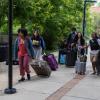 This summer, young string musicians from across the country came together at CU Boulder’s College of Music to hone their craft and advance a culturally diverse future of music at the Sphinx Performance Academy summer camp.
This summer, young string musicians from across the country came together at CU Boulder’s College of Music to hone their craft and advance a culturally diverse future of music at the Sphinx Performance Academy summer camp. Professor of Law Scott Skinner-Thompson, who focuses on LGBTQ+ and HIV legal issues, discusses the U.S. Supreme Court's recent ruling involving the 303 Creative company, and legal implications for LGBTQ+ rights.
Professor of Law Scott Skinner-Thompson, who focuses on LGBTQ+ and HIV legal issues, discusses the U.S. Supreme Court's recent ruling involving the 303 Creative company, and legal implications for LGBTQ+ rights.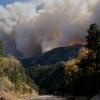 With the Fourth of July approaching and a thick green carpet of fuel covering much of the West after a rainy spring, CU Boulder fire ecologist Jennifer Balch is calling on people to do their part to prevent the next megafire.
With the Fourth of July approaching and a thick green carpet of fuel covering much of the West after a rainy spring, CU Boulder fire ecologist Jennifer Balch is calling on people to do their part to prevent the next megafire.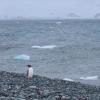 As Earth’s atmosphere continues to warm, biodiversity in the global ocean is increasingly at risk. In this Q&A with Cassandra Brooks, we explain the importance of protecting the Southern Ocean in particular as the world races to conserve biodiversity across the globe.
As Earth’s atmosphere continues to warm, biodiversity in the global ocean is increasingly at risk. In this Q&A with Cassandra Brooks, we explain the importance of protecting the Southern Ocean in particular as the world races to conserve biodiversity across the globe. As we round out Mental Health Awareness Month, faculty from the Musicians’ Wellness Program in the College of Music discuss the importance of developing a strong physical and mental health foundation for music students to excel in their professional careers and beyond.
As we round out Mental Health Awareness Month, faculty from the Musicians’ Wellness Program in the College of Music discuss the importance of developing a strong physical and mental health foundation for music students to excel in their professional careers and beyond.


